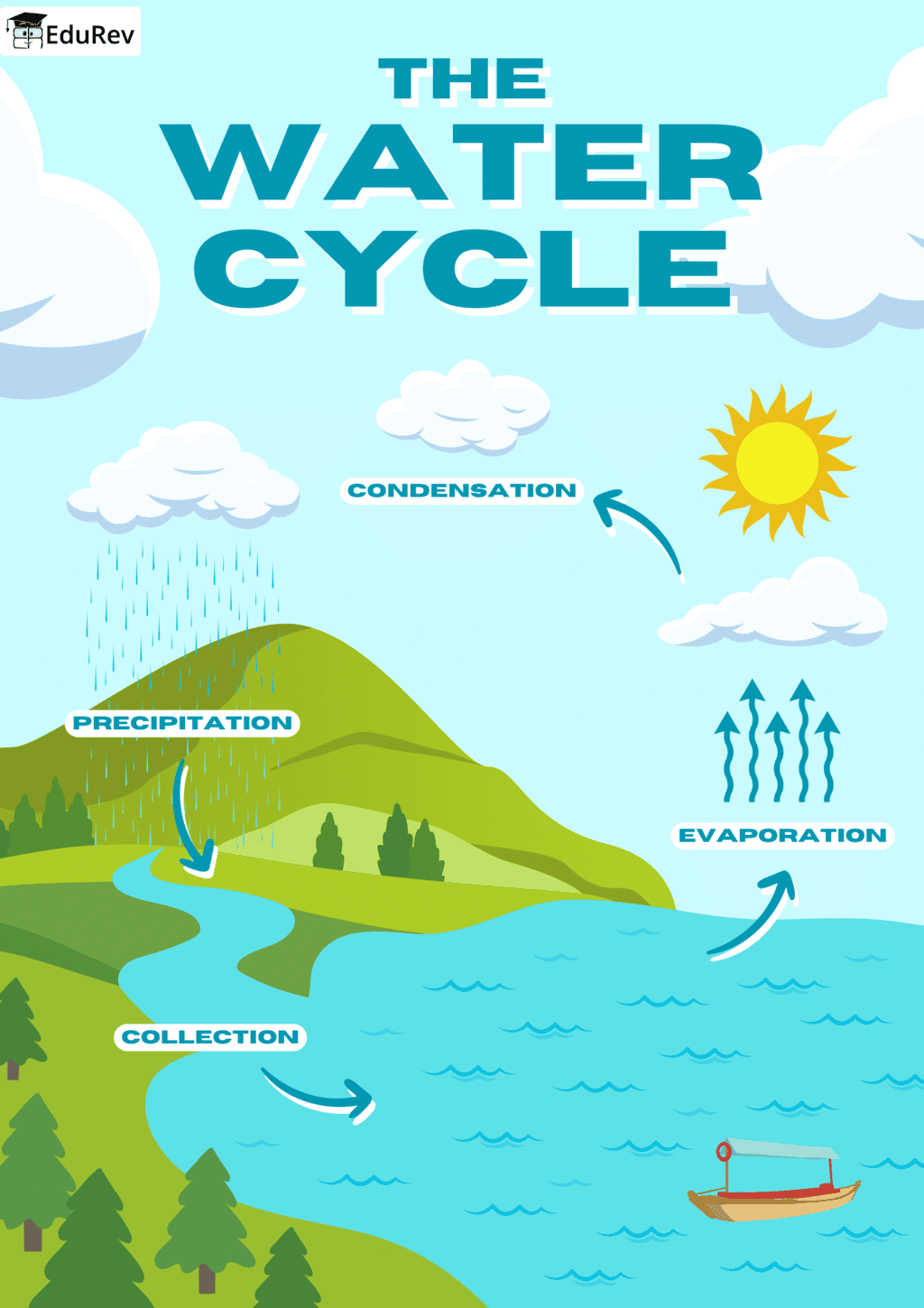Class 6 Exam > Class 6 Notes > Science for Class 6 > Learning Poster: A Journey through States of Water
Learning Poster: A Journey through States of Water | Science for Class 6 PDF Download

The document Learning Poster: A Journey through States of Water | Science for Class 6 is a part of the Class 6 Course Science for Class 6.
All you need of Class 6 at this link: Class 6
|
86 videos|288 docs|27 tests
|
FAQs on Learning Poster: A Journey through States of Water - Science for Class 6
| 1. What are the three states of water? |  |
Ans. The three states of water are solid, liquid, and gas. In its solid state, water is ice, which occurs when the temperature drops below 0°C (32°F). In its liquid form, water is what we commonly drink and use in various activities. Lastly, water vapor is the gaseous state, which occurs when water evaporates.
| 2. How does water change from one state to another? |  |
Ans. Water changes from one state to another through processes such as melting, freezing, evaporation, and condensation. Melting occurs when ice (solid) is heated and turns into liquid water. Freezing is the opposite process, where liquid water cools and turns into ice. Evaporation happens when liquid water is heated and turns into water vapor (gas), while condensation occurs when water vapor cools and turns back into liquid water.
| 3. What is the importance of the water cycle? |  |
Ans. The water cycle is crucial because it helps distribute water across the Earth, maintaining ecosystems and supporting life. It involves processes like evaporation, condensation, precipitation, and runoff, ensuring that water is continually recycled. This cycle also helps regulate climate and replenish freshwater sources.
| 4. Can water exist in more than one state at the same time? |  |
Ans. Yes, water can exist in more than one state at the same time, particularly in a state known as equilibrium. For example, when ice is placed in liquid water, some ice will melt while some water will evaporate, creating a mixture of solid, liquid, and gas until a balance is reached.
| 5. How does temperature affect the state of water? |  |
Ans. Temperature significantly affects the state of water. As the temperature rises, solid ice melts into liquid water, and further heating causes the water to evaporate into gas. Conversely, lowering the temperature causes liquid water to freeze into ice, and if the temperature drops enough, the water vapor can condense back into liquid or even form frost.
Related Searches





















